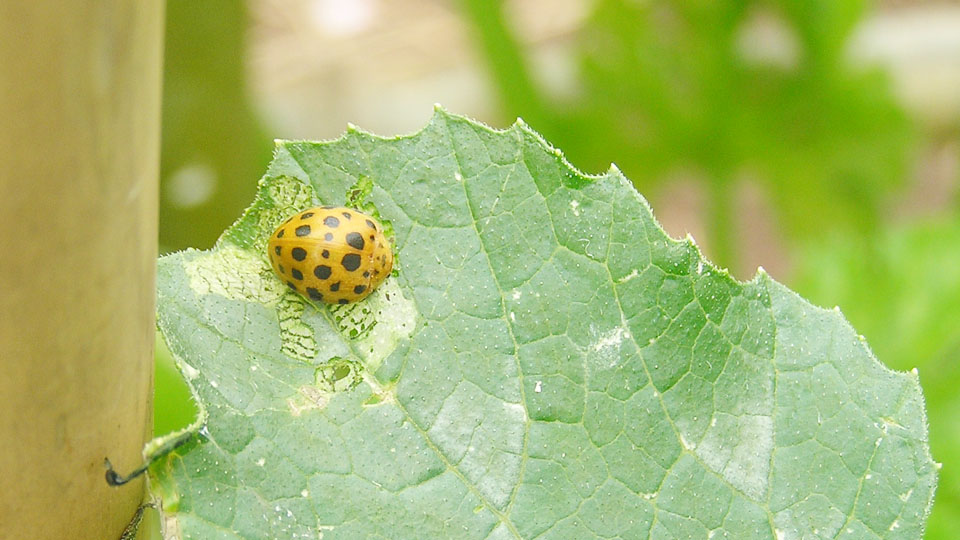Growing your own vegetables is one of the most rewarding experiences. There’s something magical about watching tiny seeds sprout into flourishing plants that will eventually feed your family. But nothing crushes that joy faster than discovering holes in your leaves, chewed stems, or crops ruined by pesky insects. Believe me, I’ve been there, and I know the frustration all too well.

Image by organicgardener
So, let’s dive into how you can protect your vegetable plants from those persistent pests. The good news? There are plenty of simple, effective, and even natural solutions to stop insects from feasting on your garden.
Why Are Insects Attracted to Your Vegetable Plants?
Before tackling the issue, it helps to understand why insects are so drawn to your plants. Essentially, your garden is a buffet for them. Insects are attracted to the smell of healthy plants, the moisture in the soil, and the shelter provided by dense foliage.
Certain vegetables like tomatoes, lettuce, and cucumbers are more prone to pest attacks because of their soft leaves and sweet smell. Once insects find your garden, they can multiply quickly, making it even harder to get rid of them.
Identifying Common Vegetable Garden Pests
Knowing your enemy is half the battle. Here are some common garden pests and the damage they cause:
Aphids
These tiny green, yellow, or black bugs suck the sap from your plants, leaving behind a sticky residue and stunted growth.
Caterpillars
These larvae munch through leaves, often leaving large, irregular holes.
Slugs and Snails
They love damp environments and will devour young plants and leafy vegetables overnight.
Whiteflies
Small, white flying insects that cause yellowing leaves and weaken plants.
Beetles
From cucumber beetles to Colorado potato beetles, these pests chew through leaves, stems, and fruit.
Natural Ways to Prevent Insects in Your Vegetable Garden
One of the best ways to tackle pests is to use natural methods that are safe for you, your plants, and the environment.
Encourage Beneficial Insects
Not all bugs are bad! Ladybugs, lacewings, and praying mantises are natural predators that feast on pests like aphids and whiteflies.
How to Attract Them: Plant flowers like marigolds, daisies, and dill. These attract beneficial insects to your garden.
Use Companion Planting
Some plants repel pests naturally. By planting these alongside your vegetables, you create a natural defense system.
Examples:
- Marigolds deter nematodes and aphids.
- Basil repels mosquitoes and flies, making it great to plant near tomatoes.
- Garlic keeps away beetles and slugs.
Keep Your Garden Clean
Debris like fallen leaves or rotting vegetables can attract pests. Regularly clean your garden to remove potential hiding spots for insects.
DIY Natural Sprays to Keep Bugs Away
You can make your own insect sprays using common household ingredients. These are effective, affordable, and safe for your plants.
Garlic and Chili Spray
- What You Need:
- 2 cloves of garlic
- 1 chili pepper
- 1 quart of water
- How to Use:
Blend the garlic and chili with water, strain, and spray it directly onto your plants. The strong smell repels insects like aphids and beetles.
Neem Oil Spray
Neem oil is a natural insecticide that disrupts pests’ feeding and reproduction. Mix 2 tablespoons of neem oil with 1 gallon of water and spray it on your plants weekly.
Soap and Water Solution
Mix a few drops of dish soap with water and spray it on your plants. It suffocates soft-bodied insects like aphids and whiteflies.
Physical Barriers to Protect Vegetable Plants
Sometimes, the simplest solution is to create a physical barrier between your plants and pests.
Row Covers
Lightweight fabric covers can protect your plants from insects while still allowing sunlight and water to pass through.
Mulching
Spread mulch around your plants to discourage slugs and snails. You can use straw, wood chips, or even crushed eggshells.
Netting or Fencing
Use fine mesh netting to cover your plants, especially during peak pest seasons. This is great for keeping out larger pests like beetles or birds.
Organic Pest Control Solutions
If natural methods aren’t enough, organic pest control products can give you an extra edge.
Diatomaceous Earth
This powder, made from crushed algae fossils, kills pests like slugs and beetles by drying out their bodies. Sprinkle it around your plants.
Biological Controls
Introduce specific bacteria or fungi, such as Bacillus thuringiensis (Bt), which targets caterpillars and other pests without harming beneficial insects.
Organic Insecticides
Products like pyrethrin or spinosad are derived from natural sources and can be sprayed directly onto plants to kill pests.
Preventing Pest Infestations Before They Start
The best way to manage pests is to stop them from invading your garden in the first place. Here’s how:
Rotate Your Crops
Don’t plant the same vegetables in the same spot every year. Crop rotation prevents pests that overwinter in the soil from finding their favorite plants again.
Water Wisely
Overwatering creates a damp environment that attracts slugs and snails. Water early in the morning to allow the soil to dry during the day.
Inspect New Plants
Before adding new plants to your garden, inspect them for signs of pests or eggs. Quarantine them if needed.
Maintain Healthy Soil
Healthy plants are less likely to be attacked by pests. Use compost and organic fertilizers to keep your soil rich and nutritious.
A Quick Comparison Table for Pest Solutions
| Method | Best For | Difficulty |
|---|---|---|
| Neem Oil Spray | Aphids, whiteflies | Easy |
| Diatomaceous Earth | Slugs, beetles | Medium |
| Row Covers | Beetles, caterpillars | Easy |
| Companion Planting | Aphids, nematodes | Easy |
| Biological Controls (Bt) | Caterpillars | Medium |
What to Do If the Problem Persists
Despite your best efforts, some pest problems may persist. If that happens, consider these steps:
Identify the Culprit: Use sticky traps or monitor your plants closely to identify the pests causing damage.
Consult a Professional: Reach out to a local extension service or gardening expert for advice tailored to your region.
Reevaluate Your Methods: Sometimes, a combination of approaches works best. Adjust your strategy based on what’s most effective for your garden.
Conclusion
Dealing with insects in your vegetable garden can be challenging, but it’s not impossible. With a mix of natural methods, physical barriers, and preventive care, you can protect your plants and enjoy a bountiful harvest.
I’ve learned that the key is persistence and observation. Every garden is unique, so don’t be afraid to experiment with different techniques until you find what works best for you.
And remember, a healthy garden attracts life—some good, some not so good—but with the right tools and knowledge, you can tip the balance in your favor.
Happy gardening, and may your vegetable plants thrive pest-free!
FAQs
Are there any plants that naturally repel insects?
Yes, plants like marigolds, basil, garlic, and lavender can naturally repel pests like aphids, beetles, and mosquitoes.
Can I use vinegar to get rid of pests in my garden?
Vinegar can be effective against some pests, but it can also harm your plants. Use it sparingly and only as a last resort.
How often should I apply neem oil?
Neem oil can be applied weekly or every two weeks, depending on the severity of the pest problem.
Do coffee grounds keep pests away?
Yes, coffee grounds can deter slugs, snails, and ants. They also enrich the soil when used in moderation.
What’s the best time to spray plants for pests?
Early morning or late evening is ideal to avoid burning the leaves and harming beneficial insects.

I’m Marissa Lynn, the proud author behind GardeningProperty.com! With a deep-rooted passion for all things green and growing, I’ve dedicated years to mastering the art and science of gardening.
From nurturing vibrant flowerbeds to cultivating thriving vegetable gardens, I love sharing practical tips, creative ideas, and proven techniques to help others create their dream outdoor spaces.